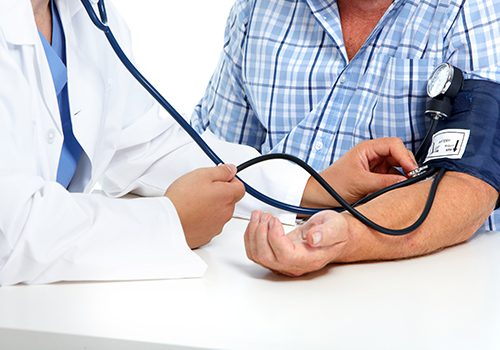In the first part of this two part series on blood pressure we discussed what blood pressure is, it’s causes and how you can identify high blood pressure. In this article we will discuss what you can do to reduce your blood pressure.
How can I reduce my Blood Pressure?
Everyone can benefit from taking measures to lower blood pressure. Even if you have a healthy blood pressure you can still take steps to ensure it remains healthy. The following lifestyle modifications can help significantly lower your blood pressure:
- Maintain a healthy weight
- Stop smoking
- Reduce salt intake
- Drink alcohol in moderation
- Increase fruit and vegetables
- Become more physically active
- Try to manage stress
1. Maintain a healthy weight
It is well researched that being overweight can lead to an increased risk of high blood pressure. Maintaining a well balanced diet can considerably reduce your blood pressure. Losing as little as 10% of excess weight can lower blood pressure.
Being overweight is also a risk factor for heart disease and diabetes.
Consult with your GP/Nurse to set realistic achievable goals for weight reduction.
10% weight reduction can lower your BP by 10-20mmHg.
2. Stop Smoking
If you smoke, stop! Smoking is another major risk factor for heart disease and stroke. Once you quit, your risk of having a heart attack will be halved within two years. There are lots of different methods to help make quitting easier. Consult with your GP/Nurse to see what is suitable for you.
3. Reduce your salt intake
If everyone in Ireland reduced salt intake by half a teaspoon (2.4 grams per day), this could prevent approximately 900 deaths each year from stroke and heart disease.
People in Ireland take too much salt and this is directly linked to high blood pressure. It is the sodium in salt that affects blood pressure.
Tips for cutting down on your salt intake
- Do not add salt to your food at the table.
- Avoid adding salt to food while cooking.
- Cut down on processed foods that are generally high in salt.
- Try flavouring your foods with pepper, spices or herbs as alternatives to salt.
- Sea salt, rock salt, garlic salt and table salt all have the same sodium content.
4. Increase your intake of fruit and vegetables
High blood pressure can be reduced by following a healthy eating plan that is high in fruit and vegetables. Adults should eat at least 5 pieces of fruit and vegetables every day. Buy lots of fruit and vegetables in a variety of colours. Fruits and vegetables have been significantly proven to help prevent diseases such as heart disease and stroke.
5. Drink alcohol in moderation
Excessive alcohol consumption is associated with high blood pressure. It can harm the liver, brain and heart. Many people find that their blood pressure improves when they decrease their alcohol consumption. Alcohol is measured in units. The recommendations for both men and women are shown below.
- Men Maximum 17 units over 7 days
- Women Maximum 11 units over 7 days
1 UNIT OF ALCOHOL:
- ½ pint of beer
- a small glass of wine (100ml)
- 1 pub measure of spirits
6. Become more physically active
Being physically active is one of the most important steps you can take to prevent or control high blood pressure. It also helps to reduce your overall risk of heart disease. Aim for a minimum of 150 minutes of moderate intensity aerobic activity per week. One way of achieving this is a 30 minute brisk walk 5 days per week.
Tips for being more active:
- Use the stairs instead of an elevator.
- Get off the bus one or two stops earlier.
- Park your car at the far end of the car park.
- Remember any activity that leaves you warm and slightly out of breath is good
7. Try to manage your stress
Anxiety and stress may raise your blood pressure in the short term. This is a normal response and healthy blood vessels can cope with these changes. However, if your blood pressure is raised for long periods of time due to stress, this will eventually damage the walls of your arteries.
Try to develop methods of coping with stress that you can practice anywhere, a way of “switching off” for 5-10 minutes. Relaxation exercises can help to release brain chemicals that act as your body’s natural brain tranquilizers, helping to lower blood pressure, heart rate and anxiety levels.
